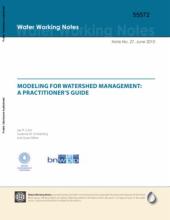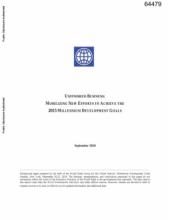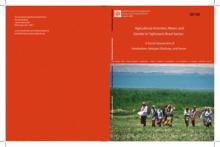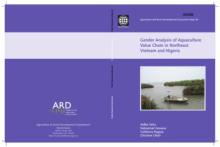/ library resources
Showing items 3088 through 3096 of 3119.The objectives of the Costing Adaptation through Local Institutions (CALI) study were (a) to identify the costs of adaptation through local institutions, and (b) to investigate which institutions help households adapt to climate variability, which efforts and costs are needed to realize the adapt
Watershed management problems are usually quite diverse, and involve a wide range of biological, geological, chemical, and physical processes with complex human, social, and economic contexts.
Man-made climate change is affecting water infrastructure in all regions of the world, affecting large numbers of people in their daily life and the development of their societies.
Backed by sound economic policies and until the global crisis, a buoyant global economy, many developing countries made significant movement toward achieving the 2015millennium Development Goals (MDGs), particularly those for poverty reduction, gender parity in education, and reliable access to s
This report discusses the key findings and recommendations emerging from a pilot Citizen Report Card (CRC) on water, sanitation, and sewerage services in Karachi.
This social assessment (SA) was conducted under the Fergana Valley Water Resources Management Project (FVWRMP), which is providing assistance to the Government of Tajikistan to address irrigation and drainage deficiencies in Eastern Sughd.
The Country Environmental Analysis (CEA) for Timor-Leste identifies environmental priorities through a systematic review of environmental issues in natural resources management and environmental health in the context of the country's economic development and environmental institutions.
The operations policy on Development Policy Lending (DPL), approved by the Board in August 2004, requires that the Bank systematically analyze whether specific country policies supported by an operation are likely to have "significant effects" on the country's environment, forests, and other natu
The report is an initiative of the Agriculture and Rural Development Department (ARD) of the World Bank. Aquaculture is the fastest-growing food sector in the world and is expected to contribute more than 50 percent of total fish consumption by 2020.
Paginación
Land Library Search
Through our robust search engine, you can search for any item of the over 73,000 highly curated resources in the Land Library.
If you would like to find an overview of what is possible, feel free to peruse the Search Guide.









